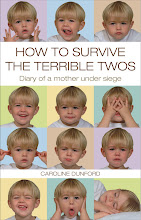I've been watching the news of the art world go by and to be honest it feels like a lot of the same old waltz of argument and counter argument. But as the dance is moving particularly fast today I thought I'd update you on the old issues
- Copyright
The ever thorny issue of how long can artists of any form make money out of their work has been raised today by musicians. The BBC reports 38,000 musicians are petitioning Gordon Brown for a change in copyright law. Their argument is that they contribute vitally to the export industry and the government is not recognizing this. Phil Pickett, from the 80s band Culture Club is quoted as saying 90% musicians earn less than £15,000 a year from royalties. As the majority of authors earn more like £5,000 a year I confess I could feel my sympathy slipping at this point. However...
Composers and authors currently retain copyright until 70 years after their death (who says you can't take it with you when you go?) while performers' copyright expires after fifty years. So if you made your money recording in the 60s things might be starting to look a little thin now regardless of your sales.
It raises the whole question about paying those who entertain in any form. A writer labors long and hard to create their work, but a performer is gaining royalties from recording the work of another. However, they are still employing their talent and their training and effect to reach their level of success will have been considerable.
Effectively we're asking when does it become reasonable to pay someone royalties, as opposed to a flat fee, for their work? For example should an architect get a proportion of rent or entrance fees on a building he designed? If you've trained long and hard to get to the level where you produce something that people generally enjoy, use and pay towards when is it fair to ask for a royalty? How about a surgeon, who saves your life, are they entitled to a proportion of your income for life? It's so easy to push at the boundaries of this issue and extend it far beyond reason.
I'm an author. I believe in royalties. Okay, there's a small part of me that sort of fancies the old days when a patron kept giving you chunks of money so you could peruse your art and you didn't have to worry about pleasing the general rabble - er - sorry, the great public. But even then your livelihood depending on continuing to please your audience.
Or is it about risk? I could, theoretically, become a wage slave at some institution or another. Or I can continue striving for that bright and elusive star, a best selling novel. Are royalties my reward for taking that leap of faith?
All this comes at a time when the draft European Copyright Term Directive is under debate. Under this performers and producers would have their copyright extended from 50 to 95 years after release.
I'll confess anything with Draft and European in it makes me want to run away and hide under the duvet. By the nature of the beast you just know it's going to be long, complicated and written by a committee - and while writing by committee seems to work well for some television shows that's about as far as it goes.
But we should pay attention. How we reward people in society for their efforts in all areas requires our attention. There are already, to my mind, some grossly unfair accepted ways of rewarding professionals.
And art - art is the heart beat of a people. It reflects and exposes as much as it entertains. Art in all forms represents the spirit of a nation. It can inspire, lift moods and generally remind us of our own humanity or lack of it. In these darker days books, music, art, film will become personal weapons against the demoralizing times of the credit crunch.
I can feel this is about to turn into an argument for why we need the arts at all, so I'll stop here. Please pay attention to the copyright arguments and make your opinion heard. If you don't you may find vast pool of artistic talent and associated products we have in the UK rapidly diminishing before your eyes as current and future generations opt for financially safe occupations rather than artistic ones.






No comments:
Post a Comment